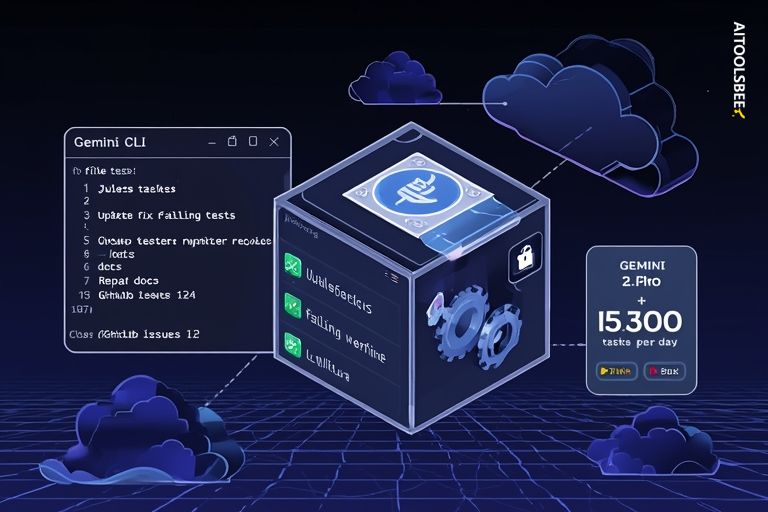
Google adds asynchronous coding agent to Gemini CLI
Developers now have a way to offload routine coding chores as Google adds an experimental asynchronous agent to its Gemini CLI. In its first release, the agent named Jules handles documentation, testing, bug fixes and dependency updates while it keeps working in the background so engineers can stay focused on higher value tasks.
Running inside a contained virtual machine, Jules can clone repositories, install dependencies and modify files without touching a local setup. From within Gemini CLI, developers can assign asynchronous work and let the extension triage GitHub issues, open a new branch, submit fixes and execute both existing and newly created tests while they continue coding.
To get started, teams need Gemini CLI version 0.4.0 or higher and a Jules account, then a repository can be connected through the tool’s console. Installation is handled in the terminal with an optional --auto-update flag. Tasks are handed off by prefixing prompts with /jules, and users can ask the agent clarifying questions about how a job is progressing. Google has posted additional details on its developer blog and the product website.
For pricing, Jules is available in three tiers with daily task limits that range from 15 to 300. The two paid levels, Pro and Ultra, are linked to a Google AI subscription. For now all tiers run on the current Gemini 2.5 Pro model, while Pro and Ultra are set to gain access to newer models at a later date.
The launch comes as command line assistants mature from prompt responders into autonomous helpers that manage long running tasks, a shift that favors tools tightly woven into developer workflows. The broader Gemini ecosystem already lists 119 extensions for Gemini CLI, and Jules arrives as an example of how integration depth and reliability are becoming the differentiators that matter to teams under delivery pressure.
Investors have been rewarding products that bundle background automation with predictable subscriptions, a pattern that points to steadier revenue as model upgrades become part of tiered plans. For enterprises, the practical impact lands in content workflows as documentation, test reports and release notes are generated by agentic systems rather than written by hand. In that light, Jules hints at a future where coding tools quietly produce the operational content that surrounds software, and where the most valuable work stays in human hands.

Highlights how AI enhances productivity and transforms creativity
through a user-centered perspective.

